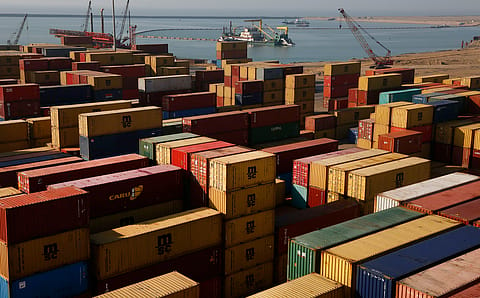Adani Ports to adopt TNFD framework, sharpens focus on nature-positive infra
APSEZ has joined the Taskforce on Nature-related Financial Disclosures (TNFD) as an adopter, committing to nature-positive infrastructure development. This initiative aligns with its broader ESG strategy, enhancing disclosure standards and integrating nature into decision-making processes.

Joining a select league of global port operators championing biodiversity, Adani Group's Adani Ports and Special Economic Zone Limited (APSEZ) has become a Taskforce on Nature-related Financial Disclosures (TNFD) Adopter, committing to implement TNFD-aligned reporting on nature-related dependencies, impacts, risks, and opportunities.
The company has become India’s first Integrated Transport Utility to embrace the TNFD framework, setting a new benchmark for nature-positive infra development.
What is TBFD?
The TNFD is a global, science-based initiative founded by a coalition including the United Nations Environment Programme Finance Initiative (UNEPFI), the United Nations Development Programme (UNDP), the World Wildlife Fund (WWF) and Global Canopy, to guide companies in identifying, assessing, managing, and disclosing nature-related risks and opportunities.
APSEZ to enhance disclosure standards
APSEZ will further enhance disclosure standards to ensure alignment with the TNFD recommendations in its corporate reporting starting FY26. The company claims it’s a key component of APSEZ’s broader ESG strategy and reflects an approach in assessing and addressing nature-related dependencies, impacts, risks, and opportunities.
APSEZ claims it has already institutionalised climate risk assessment and disclosure practices that align with globally recognised frameworks and set standards in environmental stewardship, having afforested over 4,200 hectares of mangroves and conserving an additional 3,000 hectares.
Recommended Stories
The main aim of these efforts is not only to enhance biodiversity but also to act as natural buffers against climate-related risks. “Our adoption of the TNFD framework demonstrates support for nature-related corporate reporting at COP30. The TNFD framework provides robust support for integrating nature into our decision-making processes and enhancing our contribution to biodiversity conservation,” said Ashwani Gupta, Whole-Time Director & CEO of APSEZ.
APSEZ Q2 FY26 net profit came in at ₹3,120 crore, up 29% YoY, while its revenue stood at ₹9,167 crore, a surge of 30% YoY. The earnings before taxes (EBITDA) grew strongly at ₹5,550 crore, up 27% on a year-on-year basis.
The company said its domestic ports have delivered the highest-ever H1 FY26 EBITDA margin at 74.2%, while international ports saw H1 FY26 revenue and EBITDA hitting a lifetime high of ₹2,050 crore and ₹466 crore, respectively.
APSEZ shares are trading 2.25% (1 pm) up at ₹1,507.60 on the NSE today.
(INR CR)
